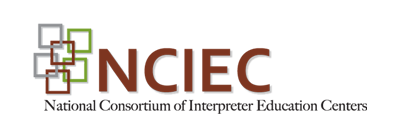Specialization
As Deaf and Deaf-Blind individuals gain more access and inclusion within the broader society, the range of communication events in which they participate expands both in terms of frequency and complexity. An increased demand for competent sign language interpreters is seen in a wide range of settings. The breadth and depth of subject matter being addressed in many of these settings requires greater degrees of specialized competence on the part of interpreter practitioners, and the need for specialized training opportunities.
Specialist competence in interpreting has been a topic of exploration by various workgroups within the National Consortium. The exploration has focused primarily on defining competencies of specialist practitioners and/or documenting best and effective practice in specialized settings such as legal, healthcare, video, and Deaf interpreter practice. Further, in an effort to capture the unique patterns of practice that define specialization in interpreting and advance the knowledge, practice, and standing of practitioners who seek or possess specialist competencies, the MARIE Center of the National Consortium undertook an effort to conceptualize a framework for specialization (Witter-Merithew 2010).
In these website pages, the Consortium’s past and current work in areas of interpreting specialization are explored. Effective practice-based training and resources are made available building on the work of the 2005-2010 grant cycle, even as the Consortium has engaged in new investigations of trilingual and vocational rehabilitation interpreting practice.
Reference
Witter-Merithew, A. (2010) Conceptualizing a Framework for Specialization in ASL-English Interpreting. National Consortium of Interpreter Education Centers.
